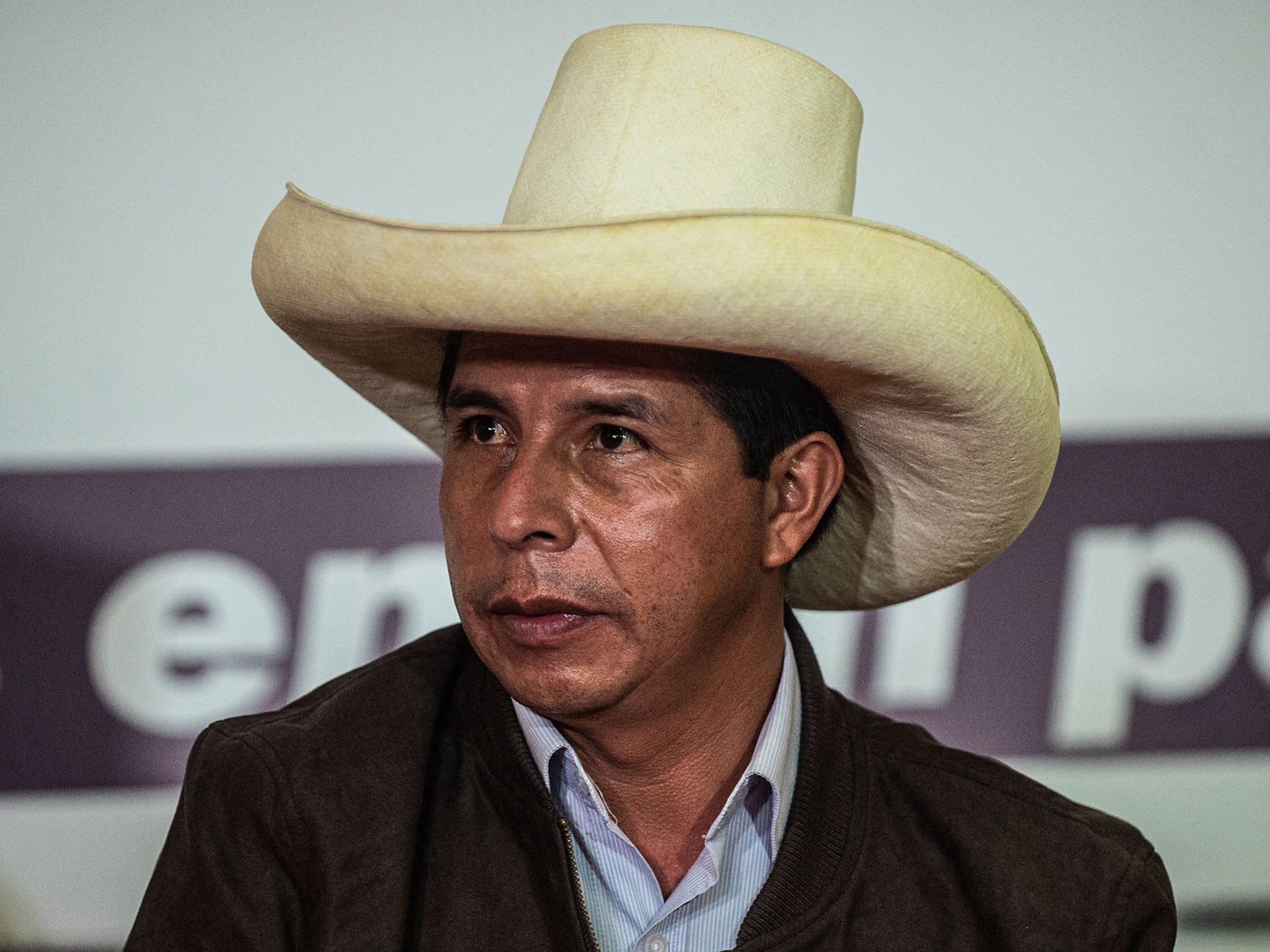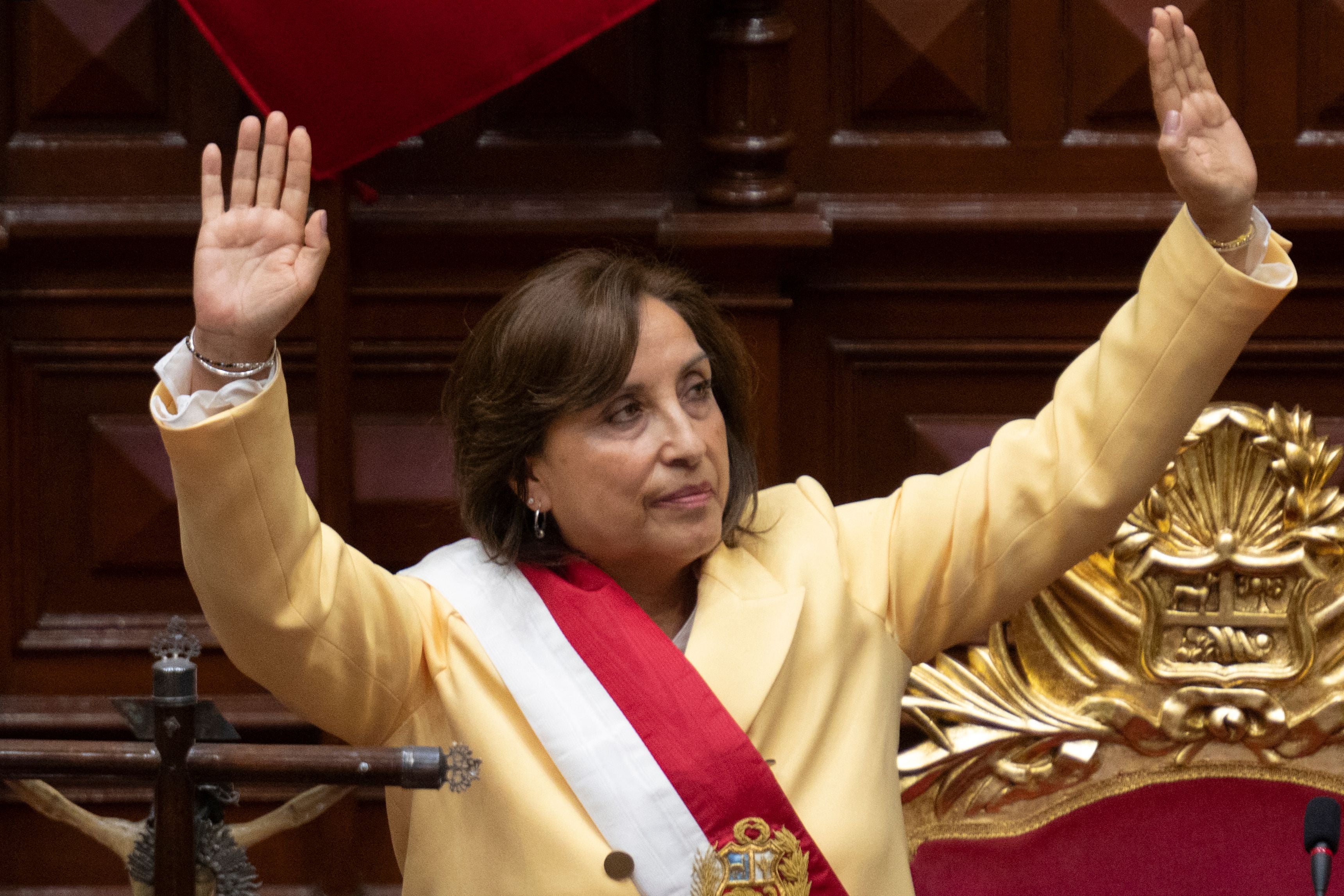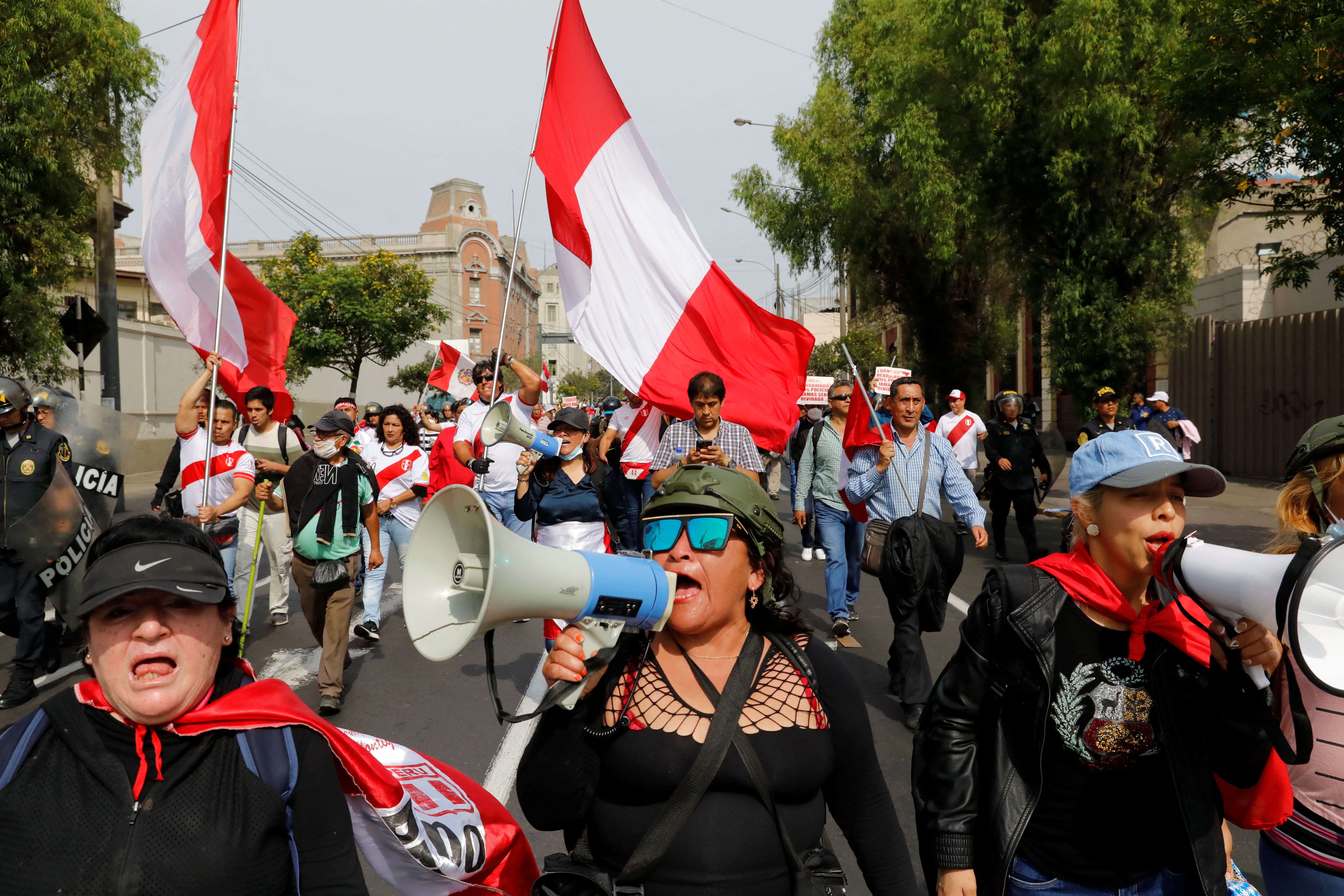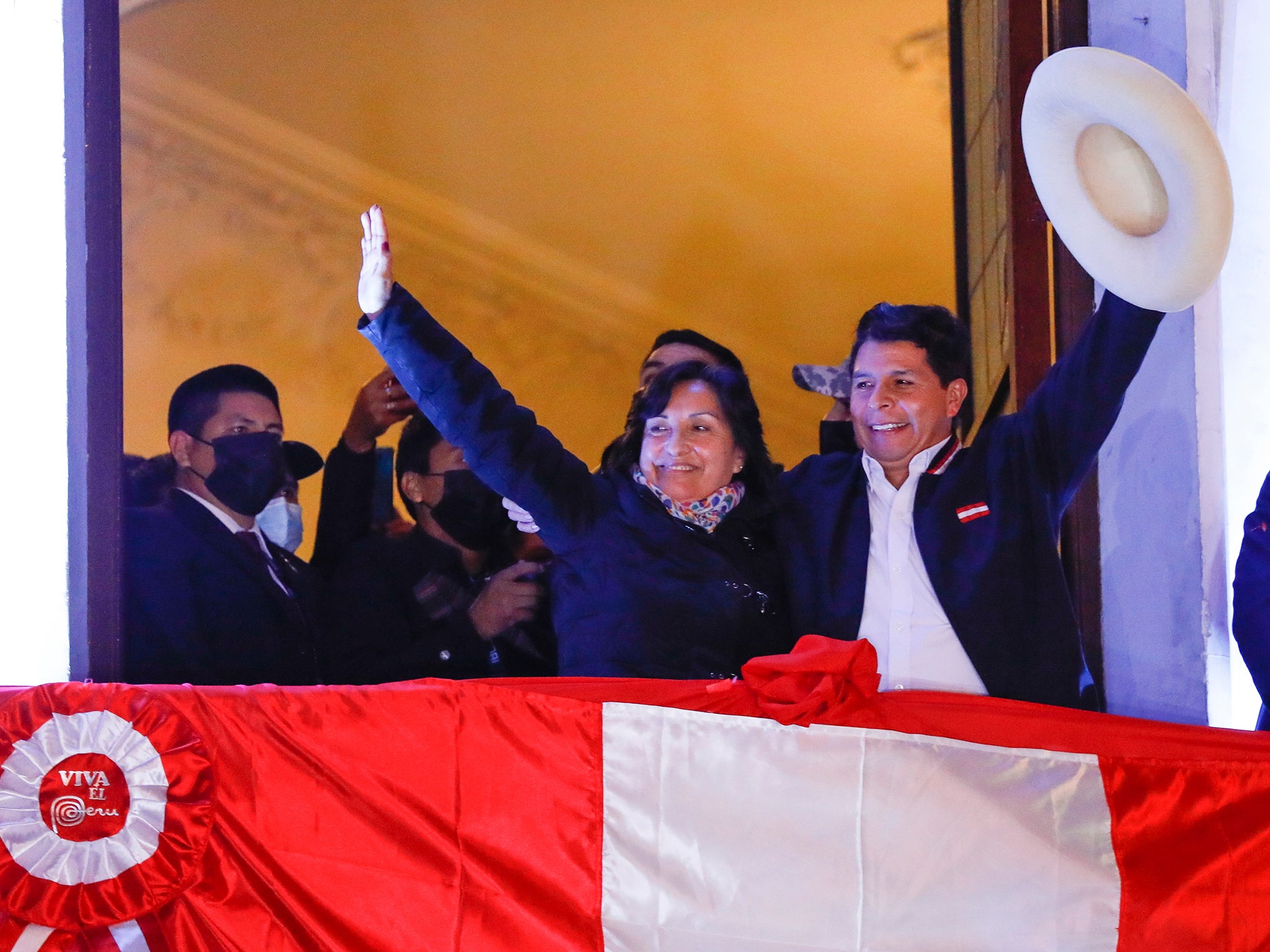Peru’s president Pedro Castillo removed from office by Congress and accused of sedition
Short-lived leader impeached on corruption charges after attempt to overpower legislature

Your support helps us to tell the story
From reproductive rights to climate change to Big Tech, The Independent is on the ground when the story is developing. Whether it's investigating the financials of Elon Musk's pro-Trump PAC or producing our latest documentary, 'The A Word', which shines a light on the American women fighting for reproductive rights, we know how important it is to parse out the facts from the messaging.
At such a critical moment in US history, we need reporters on the ground. Your donation allows us to keep sending journalists to speak to both sides of the story.
The Independent is trusted by Americans across the entire political spectrum. And unlike many other quality news outlets, we choose not to lock Americans out of our reporting and analysis with paywalls. We believe quality journalism should be available to everyone, paid for by those who can afford it.
Your support makes all the difference.Peruvian president Pedro Castillo has been removed from office after trying to dissolve Congress to avoid impeachment over corruption allegations.
He was replaced by his vice president Dina Boluarte, who becomes the Andean nation’s first-ever female leader, inheriting a highly unstable political arena.
Mr Castillo lasted one year and four months in the job, facing fierce opposition in a fractious legislature that twice before moved to impeach him before Wednesday’s successful ousting.
The Congress voted 101-6 to remove the socialist from office for reasons of “permanent moral incapacity”, a charge that finally stuck on the third attempt.
In a desperate attempt to cling to power, Mr Castillo ordered Congress to dissolve ahead of the vote, drawing accusations of sedition from constitutional authorities.
Peru’s Supreme Court, along with governmental watchdogs, said the president attempted a coup, though one expert pointed out to the Associated Press that Mr Castillo was technically working within his power.
Shortly before the vote, Mr Castillo announced that he was installing a new emergency government and called for a new constitution to be drafted. He said during a televised address that he would rule by decree meanwhile, and ordered a nightly curfew starting on Wednesday night.
He also announced that he would make changes in the leadership of the judiciary, police and constitutional court. The head of Peru’s army then resigned, along with four ministers, including those over foreign affairs and the economy.

Ms Boluarte, a 60-year-old lawyer who was voted in on the same ticket as Mr Castillo in July last year, condemned the ailing leader’s actions, saying “it worsens the political and institutional crisis that Peruvian society will have to overcome with strict adherence to the law”.
The ousted Mr Castillo left the presidential palace in Lima and was driven to a police station. In a photograph circulated by the national police on Twitter, which was later erased, Mr Castillo was visible seated inside the station surrounded by officers.
International reaction was negative or neutral. United States ambassador Lisa Kenna called on Mr Castillo via Twitter to reverse his decree to dissolve Congress, while Mexico’s secretary of foreign affairs Marcelo Ebrard said he regretted the recent developments and called for democracy and human rights to be respected.
Chile and Spain took a neutral stance. Spain’s government strongly condemned the break in constitutional order and congratulated the country on righting itself democratically.

Mr Castillo has denied allegations of corruption against him, saying they’re based on “hearsay statements by people who, seeking to lighten their own punishments for supposed crimes by abusing my confidence, are trying to involve me without evidence”.
Federal prosecutors are investigating six cases against Mr Castillo, most of them for alleged corruption, under the theory that he has used his power to profit from public works.
The power struggle in Peru’s capital has continued as the Andes and its thousands of small farms struggle to survive the worst drought in a half-century.
The government also confirmed that in the past week, the country has suffered a fifth wave of Covid-19. Since the beginning of the pandemic, 4.3 million Peruvians have been infected, and 217,000 of them have died.

The first president to come from a poor farming community in the nation’s history, Mr Castillo arrived in the presidential palace last year without any political experience.
He changed his cabinet five times during his year and a half in office, running through 60 different cabinet officials, leaving various government agencies paralysed.
Although Mr Castillo is the first president to be investigated while still in office, the probes are no surprise in a country where nearly every former president in the last 40 years has been charged with corruption linked to multinational corporations, such as the Brazilian construction firm Odebrecht.
His predecessor Manuel Merino lasted less than one week as interim leader after the deaths of two protesters during a brutal police crackdown.
Additional reporting by agencies





Join our commenting forum
Join thought-provoking conversations, follow other Independent readers and see their replies
Comments